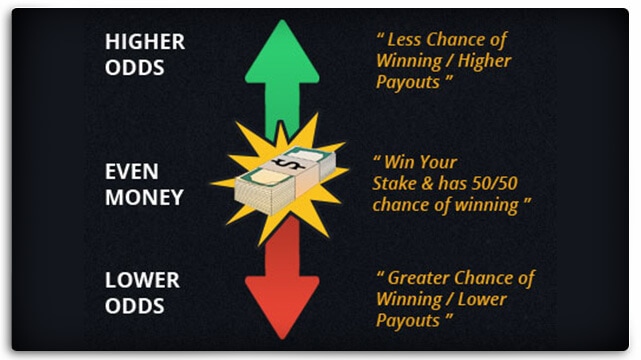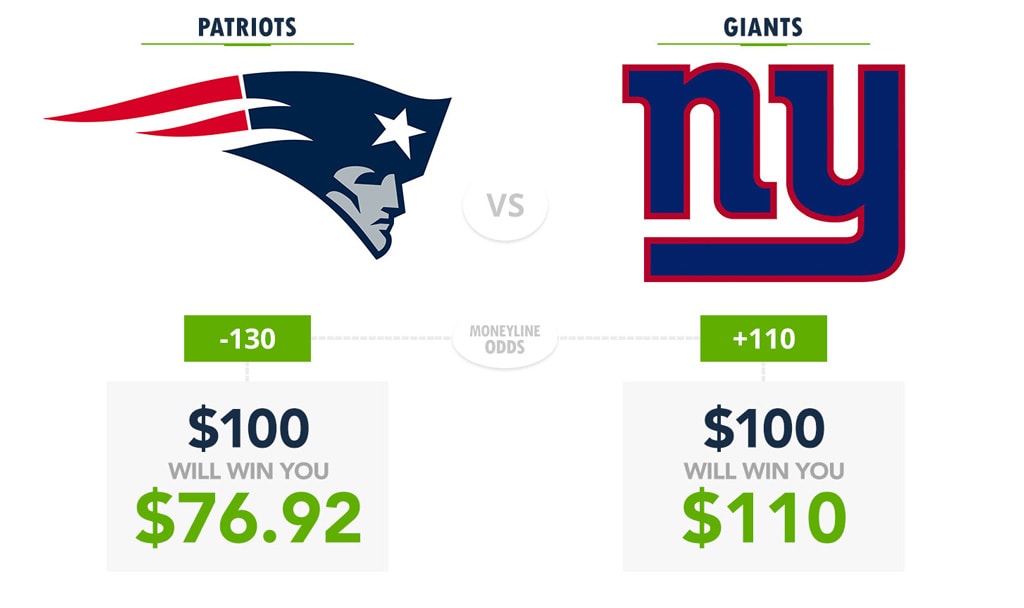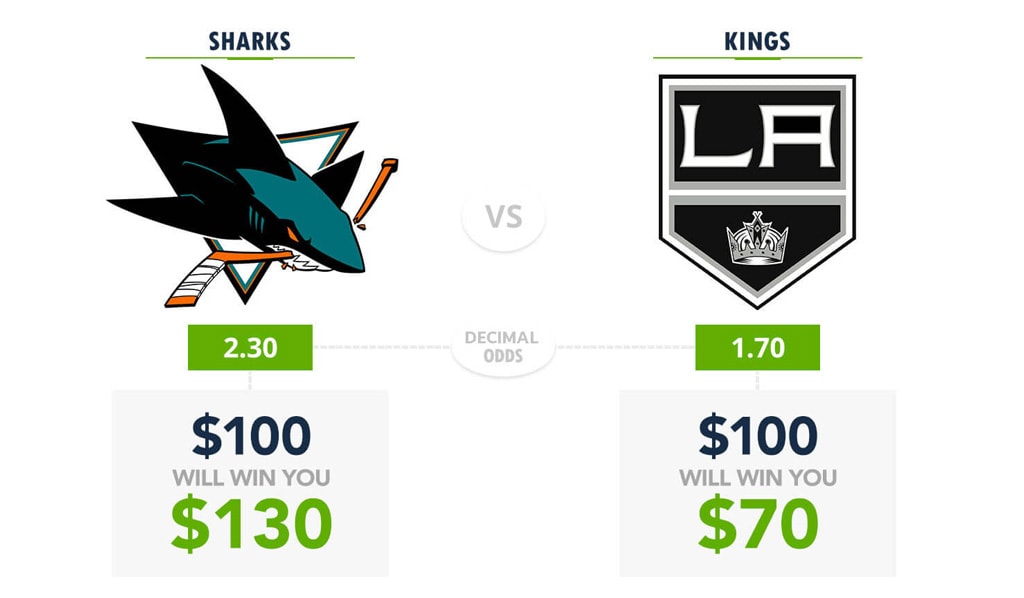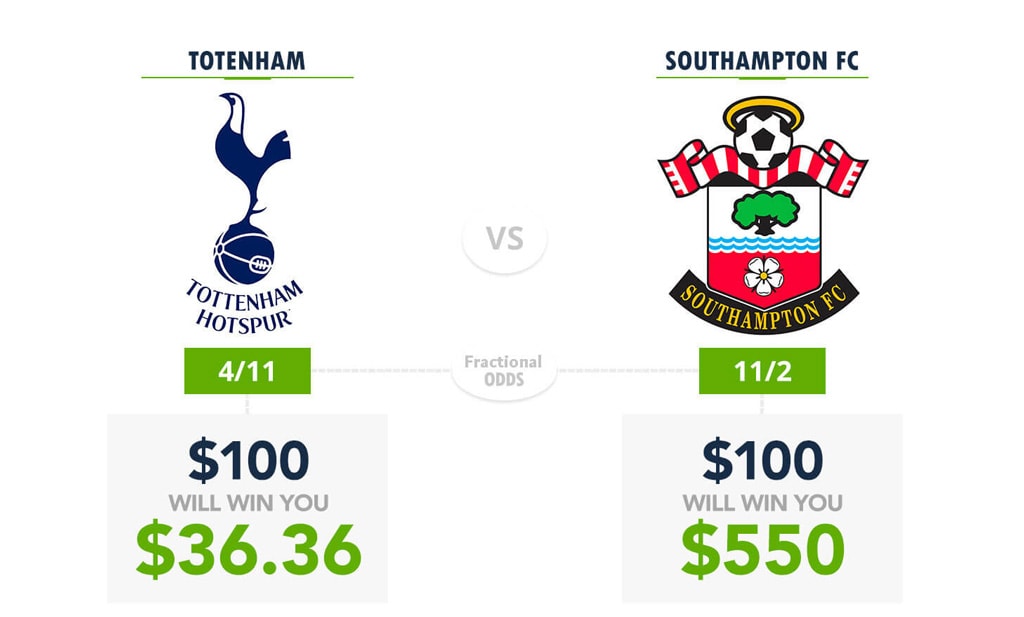
- Real Money Gambling
- Online Casinos
- Sports Betting
- Poker Sites
- Esports Betting
- Online Slots
- Blackjack
- Video Poker
- Texas Holdem
- Online Casino
- Sports Betting
- Sports Betting Sites
- US Sports Betting Sites
- Beginner’s Guide
- Football Betting
- How to Bet on Football
- NFL Betting Sites
- Super Bowl Betting Sites
- Reviews
- Popular Now
Home » Sports Betting » Beginner's Guide » Odds
Sports Betting Odds Explained
 Author: Taylor Smith | Last Updated: March 2024
Author: Taylor Smith | Last Updated: March 2024Sports betting is a common hobby for many gambling or sports enthusiasts. It provides an outlet for your expansive sports knowledge, but is also potentially profitable!
You’re probably new to sports betting if you’re reading this guide, so we’ll be sure to get you on the right track. The most important aspect of being a successful sports bettor is understanding how sports betting odds work. They are an integral part of any sports wager, and they are used to determine whether a wager is worth making or not. The potential payout of any wager you place is calculated using a combination of the relevant odds and your stake.
Without that fundamental knowledge, you are kind of shooting in the dark!
But no need to fret if all the odds talk is confusing; we’ve all had sports betting odds explained to us before.
On this page, we explain about odds in some detail. We define exactly what they are and the role they play. We also look at the three different formats in which they can be expressed, and explain why odds on the same outcome can vary with different bookmakers.We assure you that with this beginner’s guide, you’ll walk away understanding sports betting odds!
What Are Odds? Sports Betting Odds Explained
In sports betting terms, odds basically serve two purposes.
First, they are used to calculate the payouts of winning wagers.
Every time you place a bet with a bookmaker, you’ll be offered
odds at the time, which impact how much you can win. The higher
they are, the more you stand to win relative to your stake.Second, odds also reflect the likelihood of any particular
outcome happening. The more likely an outcome, the lower they
will be. This makes perfect sense, as you would expect to win
less when betting on an outcome that’s likely than when betting
on an outcome that is unlikely.
The key to understanding sports betting odds is to see how they apply to a real situation. Imagine a tennis match where the player ranked number one in
the world is pitted against the player ranked 137th. It stands
to reason that the best player in the world is going to be
considered more likely to win than his opponent. Therefore, a
wager on his winning would have very low odds; a wager on his
opponent winning would have much higher odds.This is a somewhat simplified explanation, but it gives a
general idea of the role of odds in sports betting.How Do You Read Sports Betting Odds Formats?
As you can see, the fundamental principle behind odds is
really quite straightforward. Things are slightly complicated by
the fact that there are three different formats of odds as
follows:- Moneyline/American Odds
- Decimal Odds
- Fractional Odds
Chances are, at some point, you’ll encounter each of these
formats. For this reason, it pays to be familiar with each one.
They all work in essentially the same way–basically just
different ways of expressing the actual odds for any particular
wager.Moneyline or American Odds
Moneyline odds are also known as American odds, and this is
the format most commonly used in the United States. They can be
displayed as either a positive or a negative number. A positive
number expresses how much a correct wager of $100 would win,
while a negative number expresses how much you would need to
stake in order to win $100.
If you saw odds of +150, you would know that a $100 bet could
return $150 in winnings, plus the initial stake of $100. If you
saw -150, you would know you need to stake $150 to return $100
in winnings, plus the initial stake of $150. An even money wager
(where you stand to win an amount equal to your stake) is
expressed as +100.Decimal Odds
Decimal odds used to be associated mostly with mainland
Europe, Canada, and Australia. However, they have now largely
become the standard at most online bookmakers with the exception
of some US betting sites. This is because they are the most
straightforward of the three formats and are expressed simply as
a single positive number, typically to two decimal places.
The number shows how much the total payout will be, including
the original stake per unit staked. For example, a winning bet
at 1.5 would return a total of $1.50 for every $1 staked. A
winning bet at 2.25 would return a total of $2.25 for every $1
staked. An even money bet is expressed as 2.00.Fractional Odds
Fractional odds are the traditional format used in the United
Kingdom, although decimal odds are slowly taking over.
Calculating potential profits and payouts with this format can
be a little tricky, certainly to start with, but the basic
principle isn’t as complicated as it might seem. As with
moneyline odds, fractional odds show how much potential profit
you can make. To calculate the total potential payout, you have
to add your original stake.As the name suggests, these odds are displayed as a fraction.
A simple example is 3/1, which is said as “three to one”. 5/1 is
said as “five to one”, and so on. With 3/1, you can win three
units for every one unit staked, and with 5/1 you can win five
units for every one unit staked. 1/1 is even money, so you can
win one unit for every unit staked. As you can see, this is
quite straightforward so far.
Things get slightly more complicated, because this format also
includes examples such as 6/4, 11/10, and 5/2. The math involved
is thus not always so simple. With 6/4, you can win six units
for every four units staked, which is equal to 1.5 units per
unit staked. With 11/10, you can win eleven units for every ten
units staked, or 1.1 units per unit staked.Whenever the first number is larger than the second, this is
said to be “odds against.” These are basically the equivalent of
positive moneyline odds in that the potential profit is greater
than the amount staked. Things get even more complicated as
there are also “odds on” odds. These are the equivalent of
negative moneyline odds in that the potential profit is less
than the amount staked.An example of odds on is 1/4 is said as “four to one on”. 4/7
is “seven to four on”, and so on. With 1/4, you can win one unit
for every four units staked, and with 4/7 you can win four units
for every seven units staked.Converting Sports Betting Odds Formats
If you ever want to convert odds from one format to another,
there are some reasonably straightforward calculations you can
do. We can save you the bother, however, as we offer a useful
tool which will automatically convert any odds from one format
to another. You can find this tool on the following page.Why Sports Betting Odds Vary on the Same Outcome
For a lot of wagers on sporting events, you’ll see that
different bookmakers offer different odds. For example, one
might have a football team at +130 to win a match, while another
might have the same team to win the same match at +120. The idea that different sportsbooks have the ability to create their own numbers is key to understanding how sports betting odds work. To
explain this, we expand on a statement made earlier.When we said that odds reflect the likelihood of a particular
outcome happening, it would have been more accurate to say that
they reflect how likely a particular outcome will happen in the
view of the bookmaker. Predicting how likely any outcome is in a
sporting event isn’t an exact science, and it essentially comes
down to a matter of opinion.This is why the odds in sports betting are variable, because not
all bookmakers will have exactly the same view on how likely a
particular outcome is. Odds can also be affected by other
factors, such as the amount of money a bookmaker has taken on a
particular market. What this means is that the odds that a
bookmaker sets for a wager aren’t always an accurate reflection
of the true likelihood of the relevant outcome happening.Therefore, it’s possible to put the odds in your favor when
betting on sports. If you’re able to correctly predict the
outcome of sporting events often enough, you can consistently
turn a profit. It’s not easy, but if you can combine your sports
knowledge with an understanding of certain key aspects of
betting, it can definitely be done.Odds are one of those key aspects, and you hopefully now
understand how they work and why they vary. You should also
understand why the use of odds is the main reason why bookmakers
make money, which we explain in the next article.Beginner’s Guide
Sports Betting EssentialsSports Betting FAQs
What Is The Best Sport to Bet On?
This really comes down to what sport you are most familiar with! If you grew up playing basketball all throughout school and have a firm understanding of the NBA, then you might want to place basketball bets. The more you understand the game, the teams, and the league dynamic, the more informed bets you’ll be able to place.
Who Sets The Odds For Sports Betting?
Each sportsbook has their own team of industry professionals who assess the probability of each game outcome, whether that be a win/loss, player performance, or other factor. Then, based on their findings, they will create odds that they think reflect the likelihood of the event occurring. That’s why not all sportsbooks have the same odds on the same bets.
Should I Use American, Decimal, or Fractional Odds?
It comes down to preference. Most sportsbooks make it easy to switch back and forth between the three methods. Decimal odds are the easiest to understand, in our opinion, but it’s all about what you understand the best.
How Do Sports Betting Odds Work?
If you’re still struggling to understand how sports betting odds work, please look at some specific examples of sports betting on our football betting page.
How Do I Find The Best Odds For Sports Betting?
Well, there’s something we in the industry call line shopping. Essentially, you pick a single wager and look at the odds for that wager at multiple different sportsbooks. If one sportsbook stands from the rest because their odds are significantly higher, then you’ve found where you should place your bet.
How Do I Choose A Good Online Sportsbook?
There are plenty of online sportsbooks out there, but not all of them are worth your while. The very best online sportsbooks will be licensed, have a variety of banking options, offer good bonuses, and provide a full-range of sports wagers. If you need more help choosing a sportsbook, check out some of our recommendations.
How Do I Fund My Sports Betting Accounts?
Once you sign up at an online sportsbook, you’re presented with a variety of banking options to make a deposit. Most commonly, sportsbooks will allow you to use credit/debit cards, e-wallets, cryptocurrency, or traditional bank wires. To make a deposit, all you have to do is login and provide your banking info. But, to make withdrawals, you often have to verify personal details and give the sportsbook a copy of your government ID.
What Is The Best Banking Method For Sports Betting?
We recommend using cryptocurrencies like Bitcoin or Ethereum because they are fast, have low fees, and are very safe banking methods.
Are Sports Betting Winnings Taxable?
Yes, your winnings from sports bets are just like your winnings from a slot machine or blackjack table. They are taxable and have to be recorded on your tax returns.
GamblingSites.org DisclaimerThe information found on Gamblingsites.org is for entertainment purposes only. It is a purely informational website that does not accept wagers of any kind. Although certain pages within Gamblingsites.org feature or promote other online websites where users are able to place wagers, we encourage all visitors to confirm the wagering and/or gambling regulations that are applicable in their local jurisdiction (as gambling laws may vary in different states, countries and provinces). Gamblingsites.org uses affiliates links from some of the sportsbooks/casinos it promotes and reviews, and we may receive compensation from those particular sportsbooks/casinos in certain circumstances. Gamblingsites.org does not promote or endorse any form of wagering or gambling to users under the age of 18. If you believe you have a gambling problem, please visit BeGambleAware or GAMCARE for information and help.We're sorry, residents of your region are not accepted by this gambling site! OK

